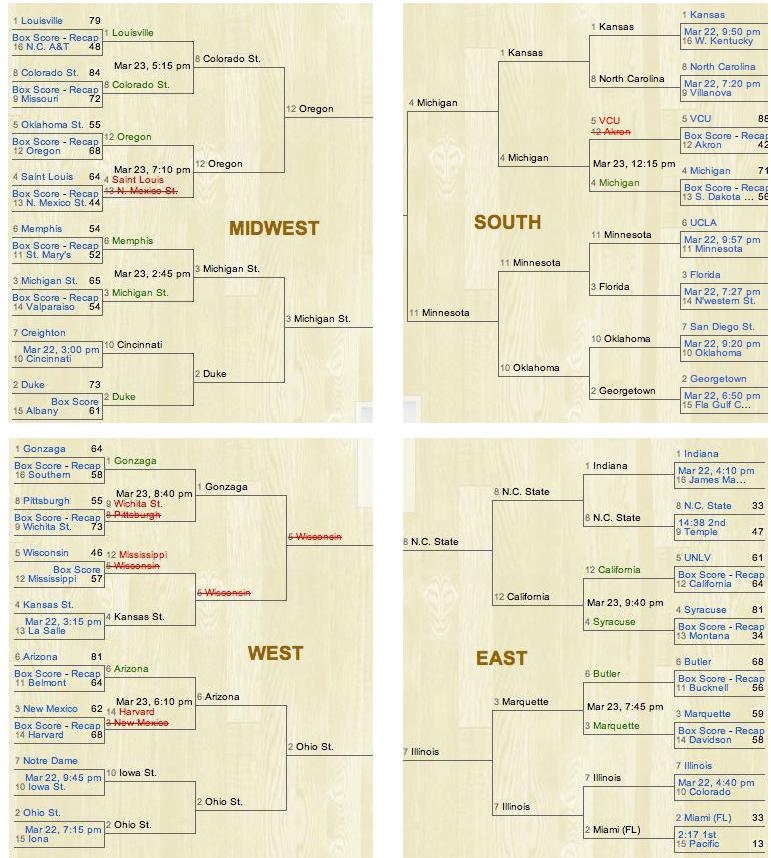CTT is tracking the NCAA “March Madness” men’s basketball tournament to see whether there is a correlation between strong materials science and engineering schools and basketball prowess. You’re welcome. Credit: Wikimedia, from 2007.
This post is NOT an excuse for me to see how my NCAA men’s college basketball tournament bracket is doing.
Not at all.
It is a report on the effectiveness of my methodology for picking the winners.
Every year my brother runs a bracket contest for the extended family, and competition for his “grand prizes” is fierce. I’ll always be proud of my “middle of the road” prize for landing exactly in the middle of the standings at the end (the “middle child,” so to speak). I dribbled my way to the middle by building brackets based on
- Teams that wear purple,
- Teams from schools that my children have applied to (a surprisingly large number),
- Teams that my family has supported with tuition money (also a surprisingly large number),
- Teams from states I have lived in, and
- Big 10 teams.
Obviously, I have nanoscale knowledge of the game of basketball.
I realized I need a more scientific approach, or at least a science-based approach: What would happen, for example, if I picked winning teams based on which school has the stronger materials science department? So that’s what I did. I went with the top seed when opponents without MSE programs played each other. This experiment will either be a study in correlation theory or an exercise in failure analysis.
I’m not doing too bad—13 for 18—mostly on the strength of the Midwest bracket, which has some powerhouse MSE schools in it. In the West division, the Wisconsin loss really hurt. They have a strong ceramic materials research program with faculty like Paul Evans (see also the January/February ACerS Bulletin), Xudong Wang (look for his article on piezotronics in the August ACerS Bulletin), Paul Voyles, and others.
It is early yet for the East and the South brackets. We’ll see how the weekend plays out!
Here is my “Materials Madness” bracket. How is your bracket doing?
(Peter adds: “By the way, another school with a good materials science program, Georgia Tech, reminds the world that a group of its researchers have a predictive system— the Logistic Regression/Markov Chain—that is the most accurate prognosticator over the last decade.)


